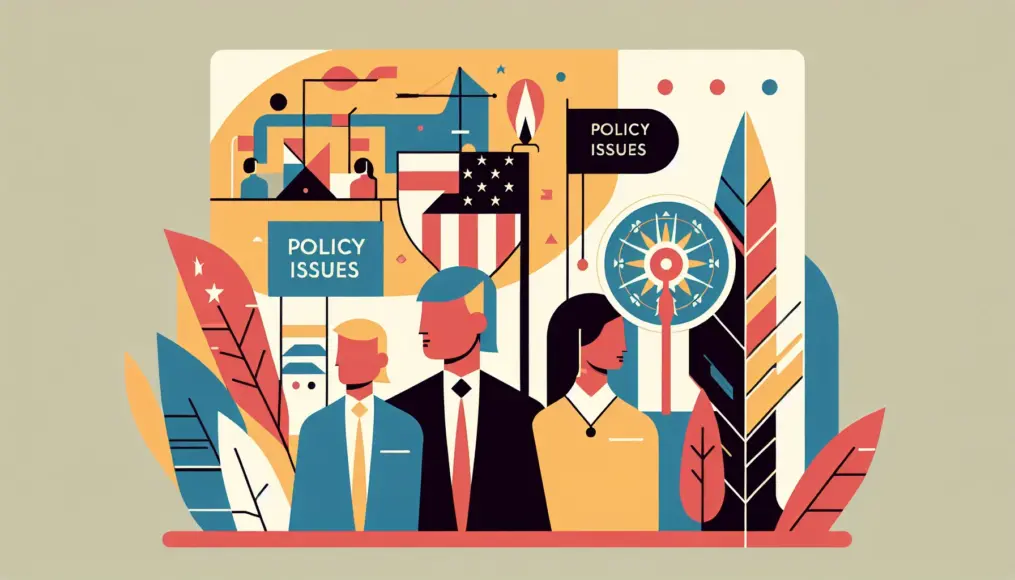Politics and ethics are deeply rooted themes in our lives, especially in Japan. To grasp the various challenges faced by modern society, it’s essential to explore these elements thoughtfully. By reflecting on the political transformations and shifts in ethical perspectives since World War II, we can gain fresh insights that will guide us into the future.
In this article, we will delve into the relationship between politics and ethics, examining the ethical dilemmas we encounter today and their societal implications. Our hope is that this exploration encourages each of us to reconsider how we engage with politics and take on our responsibilities within it.
- Reflecting on the history of Japanese politics and changes in ethics
- Analyzing the conflicts between politics and ethics in today’s world
- Exploring the new ethical standards needed for future governance
Historical Background of Politics and Ethics in Japan
The intertwining of politics and ethics in Japan has played a significant role in shaping our society. Particularly since the end of World War II, the evolution of political frameworks has been accompanied by substantial shifts in ethical perspectives. In this section, we’ll explore how political developments from the post-war era to the present have influenced each other, offering insights that can help us navigate current challenges and outline a path for the future.
Evolution of Post-War Politics
The political landscape of post-war Japan was marked by significant transformations aimed at establishing democracy. Following Japan’s defeat in 1945, a new constitution was enacted, emphasizing national sovereignty and the respect for fundamental human rights. These changes encouraged greater political participation among citizens and paved the way for increased transparency in governance. However, this period also saw political turmoil and corruption, which brought ethical issues to the forefront.
As Japan experienced economic growth, the relationship between politics and economics began to evolve. The deepening connections between businesses and politicians led to instances where ethical considerations were overshadowed by the pursuit of profit. Such dynamics have eroded public trust in politics, a challenge that continues to resonate today.
- The background of democracy’s establishment in post-war Japan
- Promotion of political participation and enhancement of transparency
- Ethical dilemmas arising from the relationship between politics and economics
Shifts in Ethical Perspectives
In the wake of the war, Japan’s societal ethics underwent a dramatic transformation. The traumatic experiences of conflict led people to recognize the importance of peace and human rights more profoundly. This shift in ethical perspectives spurred movements aimed at reevaluating political and social systems, all in pursuit of a better society.
However, with economic growth came a rise in individualism, leading to more apparent self-serving behaviors. This trend indicates a wavering of ethical values within society. The evolution of ethics continues to influence our actions and choices, and it remains a critical topic for the future.

If you found this article intriguing, you might also enjoy our piece on “Unraveling the Importance of Ethics and Regulations in Japanese Politics.” It delves into the historical context of politics and the ethical implications of various regulations, providing a deeper understanding of their impact. Be sure to check it out!
- The significance of peace and human rights stemming from post-war experiences
- The rise of individualism and the erosion of ethical values
- The societal impact of shifting ethical perspectives
Ethical Challenges in Modern Politics
Modern politics is grappling with a variety of ethical challenges. As issues increasingly intersect with our daily lives, the relationship between politics and ethics has become more crucial than ever. There’s a growing need to understand how political decisions impact our society and what ethical questions arise in that process. In this chapter, we will explore the ethical conflicts in contemporary politics and consider the social responsibilities each of us carries.
The Clash Between Politics and Ethics
If you keep up with the news, you’ll often encounter situations where politics and ethics seem to collide. For instance, the actions and statements of politicians can sometimes raise ethical concerns. When issues like conflicts of interest, corruption, and misconduct come to light, they can shake our trust in political systems. Such conflicts can infringe upon the “public good” that politics is fundamentally meant to serve.
Moreover, ethical considerations can sometimes be overlooked in the policy-making process. Economic interests often take precedence, leading to situations where the environment or human rights are sacrificed. These scenarios highlight the pressing need to reevaluate the ethical standards we expect from our society.
- Specific examples of political and ethical conflicts
- The impact of conflicts of interest and corruption
- The importance of ethical perspectives in policy-making
Social Impact and Responsibility
In today’s political landscape, the responsibilities of citizens have grown significantly. It’s vital for us to voice our opinions regarding the actions of politicians and political parties. Whether through voting in elections or expressing ourselves on social media, our voices can wield considerable influence over political matters. By doing so, we can raise awareness about ethical issues and contribute to building a better future.
Furthermore, our individual actions also have a social impact. For example, making environmentally conscious consumer choices or actively participating in our local communities can positively influence political decision-making. By making ethical choices, we can steer our society toward a healthier direction.
- The political responsibilities of citizens
- The importance of making our voices heard
- The positive societal impacts of ethical behavior
The Role of Politics Through a Cultural Lens
Politics plays a vital role in our lives, and its influence is closely tied to culture. Understanding how Japan’s traditional culture and values shape its political landscape is essential for grasping contemporary political dynamics. Additionally, from an international perspective, examining how different cultures impact politics is crucial. In this section, we’ll delve into the relationship between traditional culture and politics, as well as the importance of a global viewpoint.
The Relationship Between Traditional Culture and Politics
Japan’s traditional culture has profoundly influenced its political framework. For instance, the long-standing spirit of “wa” (harmony) and a sense of belonging to family and community have become vital values in political decision-making. This has transformed politics from merely a struggle for power into a pursuit of community harmony.
However, traditional culture can also exhibit conservative tendencies. New values and ideas can be challenging to accept, leading to conflicts, especially among younger generations who seek change. These situations often relate to ethical challenges in politics, raising the question of how to honor traditions while creating a flexible political system that meets the needs of modern society.
- The Influence of Japan’s Traditional Culture on Politics
- The Spirit of “Wa” and Community Harmony
- The Conflict Between Traditional Values and Modern Change
The Importance of an International Perspective
From a global standpoint, culture is a significant factor in politics. The diverse cultures and values of different countries can greatly affect international political interactions. For instance, cultural differences can complicate the process of reaching international agreements. Therefore, understanding and respecting each other’s cultures is essential for fostering international cooperation.
Moreover, as globalization continues to advance, cross-cultural exchanges are becoming increasingly important. In politics, gaining new perspectives and ideas through engagement with other countries can lead to better policy formation. By adopting an international perspective, we can approach politics with a broader understanding and appreciation of the world around us.
- The Impact of Different Cultures on International Politics
- The Importance of Cultural Understanding for International Cooperation
- The Necessity of Globalization and Cross-Cultural Exchange
The Future of Politics and Ethics
As we look ahead, ethics will play an increasingly pivotal role in politics. Addressing the myriad issues facing modern society requires new ethical standards. It’s essential for each of us to consider how we can maintain an ethical perspective while engaging in political discourse, and how civic participation can facilitate this. In this section, we will delve into the necessity of ethical standards in future politics and the significance of citizen involvement.
The Need for New Ethical Standards
Today’s political landscape is fraught with various ethical dilemmas. Issues such as environmental concerns, human rights, and economic inequality are critical themes that significantly influence political decision-making. To effectively tackle these challenges, we must reassess traditional ethical views and establish new standards.
These new ethical frameworks will serve as guidelines aimed at creating a more sustainable and equitable society. For instance, policies that prioritize environmental protection and promote transparency in political processes are increasingly demanded. By adopting these new ethical standards, we can make responsible choices for future generations.
- Ethical challenges faced by modern politics
- Reasons for reassessing traditional ethics
- New standards aimed at a sustainable and equitable society
The Importance of Citizen Participation
In the realm of future politics, citizen participation will become ever more crucial. When we express our opinions and engage in political matters, we empower ourselves to build a better society. Civic involvement is also a vital factor in encouraging ethical behavior among politicians.
Moreover, when citizens raise their voices on local issues, they can influence political decision-making. For example, by actively engaging with environmental concerns in their communities, citizens can demand change from politicians and government officials. In this way, each individual’s participation can be a powerful force in shaping a brighter future.
- The significant role of civic participation
- The importance of voicing your opinions
- The power of citizens in addressing local issues
Conclusion
In this article, we have delved into the intricate relationship between politics and ethics in Japan. By reflecting on the evolution of politics from the post-war era to the present day, we hope to have sparked some thoughts about the challenges we face and the outlook for the future. Notably, we’ve highlighted the ethical dilemmas present in contemporary politics and the crucial role of civic participation. Through a cultural lens, we’ve also gained insights into how politics affects our daily lives.
Moving forward, establishing new ethical standards and enhancing civic engagement will become increasingly vital for Japan. Each of us has the power to engage in politics and adopt an ethical perspective, paving the way for a better society. It’s not an exaggeration to say that the politics of the future rests in our hands.
- The relationship between politics and ethics in Japan is closely intertwined.
- Contemporary politics demands new ethical standards.
- Civic participation is a key element in building a better future.
Let’s foster our interest in the politics of tomorrow and think about it together. We’d love to hear your thoughts and feedback in the comments!



Comment